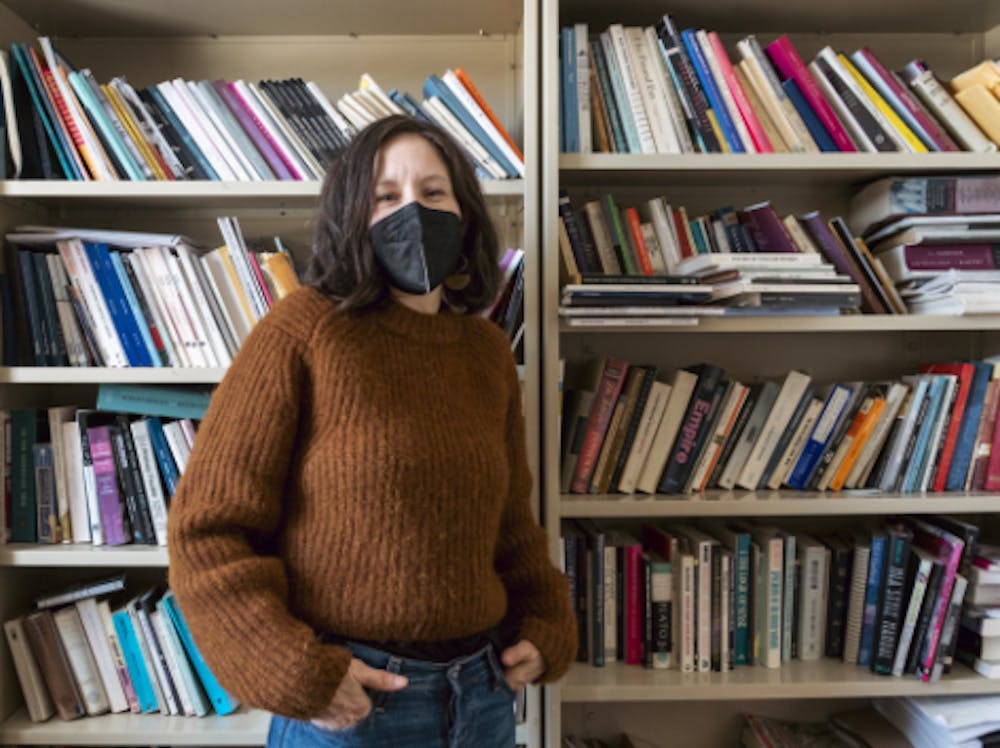Organizers for Miami University faculty’s efforts to unionize have been busy this summer. And their work may be paying off as the group moves on to the next step in the unionization process.
But Miami’s legal counsel has filed an objection to which faculty should make up the union.
Where it all started
In February, American Association of University Professors (AAUP) announced it would attempt to form the first faculty union at Miami. It pushed to include full-time tenured and non-tenured track (NTT) faculty members and librarians in its bargaining unit.
Leaders calling for the union, known now as Faculty Alliance of Miami (FAM), said faculty members have been overworked, underpaid and do not have a voice in the governance at Miami.
Since then, FAM has started the legal processes it takes to be recognized as a union. The first step was having faculty members and librarians who were eligible to be in the union sign authorization cards saying they would support unionization.
FAM needed at least 30% of those signing the cards to express support. After that, the union would be able to hold a vote.
Cards certified, but Miami objects to union make-up
While the cards were being collected, Miami’s legal counsel sent an objection to who should be included in the union. Specifically, Miami wants to exclude librarians and NTT faculty like visiting assistant professors and clinical lecturers.
In a statement sent to The Miami Student, Jessica Rivinius, interim vice president for university communications, wrote that these groups remain a valuable part of Miami’s community, but the university had a responsibility to propose a more appropriate bargaining unit.
“Because individuals in these groups are not eligible for tenure,” Rivinius wrote, “there are significant differences in terms and conditions of their employment, including the expectations of continued employment, termination/grievance procedures, salary range, workload, performance evaluation process and opportunity for promotion.”
But FAM supporters and organizers feel Miami’s distinction between tenure-track and NTT faculty only divides the university. Cathy Wagner, a professor of creative writing and lead organizer for FAM, said there is historical precedent for including NTTs and tenure-track faculty in the union.
Enjoy what you're reading?
Signup for our newsletter
“What [Miami has] done is they've made it really clear to non-tenure track faculty and librarians that they don't value them,” Wagner said. “They don't care about what they want, they don't care about their voices.”
Patricia Gallagher Newberry worked at Miami for 25 years as a senior lecturer and area program coordinator for the journalism department before retiring from teaching and returning back to the journalism field.
Newberry was considered a non-tenure track faculty member her entire time at Miami. She found Miami’s objection “disheartening” and “cynical.”
“People who are NTT have to fight so much every day for respect, credibility, for the right to be at the table,” Newberry said.
Julie Alexander is an assistant teaching professor for the first-year integrated core for the Farmer School of Business. Alexander, an NTT faculty member, said when Miami’s objection came up, she and her colleagues felt angry.
“I think we were all very disappointed to see that Miami doesn't feel that we also contribute to their mission in the same way,” Alexander said. “It was just really discouraging to hear.”
The university continues to hold that NTT faculty are still part of Miami’s community.
“While each of these roles plays a critical part in furthering our mission and delivering academic excellence to our students, Miami believes the experiences — and terms and conditions of employment — across these various groups vary drastically and would not allow for an effective collective bargaining agreement to be reached if a faculty union was established,” Rivinius wrote.
Next steps on the road to unionization
Wagner said while FAM’s lawyers filed their own petition against Miami’s, the university will get another opportunity to make its arguments on Aug. 25. But FAM organizers remain hopeful the Ohio State Employment Relation Board (SERB), the body that handles unionization, will find in FAM’s favor.
If SERB finds in favor of Miami, Wagner said NTT and librarians will still have a chance at unionization. The groups could file for their own unions if they’re not included in FAM’s.
“We’re kind of in a waiting game,” Wagner said. “The only thing that's holding us back from voting is that Miami continues to object to the unit the faculty want.”
Believing the union had more than 30% needed to hold an election, FAM organizers and their legal counsel decided to file for a "request for recognition." This requires at least 50% support from faculty and would allow the university to recognize the union without holding a vote.
On July 14, SERB recognized FAM had the "majority support" required for a request for recognition. Miami could recognize the union at any time, but organizers don't expect the university to do so.
After the makeup of the union is determined, the next step in the process will be an election. If FAM earns 51% of all votes, it will be officially recognized by SERB and the university. Once recognized, the union can begin contract negotiations.




